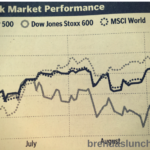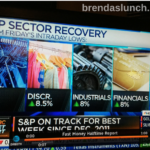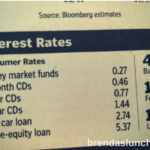What is a Mutual Fund?
Once you have saved enough for your emergency fund and short-term goals, it is time to start investing for the future. The big question is — how to get started? The answer is to — start small. Mutual funds give you an opportunity to pool your investment with other investors to buy stocks, bonds, certificates of deposit, and other mutual funds. According to Investopedia, mutual fund is defined as “an investment vehicle made up of a pool of money collected from many investors for the purpose of investing in securities such as stocks, bonds, money market instruments and other assets.”
Spread Out Risk
Picking individual stocks is much more exciting, but it is risky. When you buy individual stocks, bad news or a bad earnings report can cause an individual stock to drop 50% in one day! When you buy individual stocks, you are putting alot of your eggs in one basket. Mutual fund investing allows you to spread out your risk among many stocks. If one stock has a bad day, like General Electric, it won’t crash the mutual fund unless the mutual fund manager has invested a large portion of the mutual fund in one stock. To learn which securities a mutual fund invests in, look at the prospectus.
Invest a Small Amount Every Month
How to get started? Research mutual funds that meet your objectives. If you are investing for a long-term goal such as retirement, research mutual funds that have excellent long-term records, which is 10 years or more. Morningstar is a good resource for evaluating mutual funds. Past performance is never a guarantee for future performance, but it is a good indicator of how well the mutual fund (and company) is managed. Some mutual funds wil allow you to invest as little as $50 per month after you make your initial investment of $2,500!
Monitor Performance Every Quarter
Mutual funds report performance every quarter, which is March 31st, June 30th, September 30th and December 31st. They will send quarterly reports to shareowners of record. Read all information very carefully, and compare the mutual funds performance to the Lipper Mutual Fund Indexes. Why? You want to make sure your mutual fund is performing just as well, or better, than it’s peers.
The opinions expressed herein are solely those of the Author/WebMaster. Before taking any action, please consult your real estate, financial, and legal advisors.









![Financial World [Photo Courtesy: www.pixabay.com]](https://brendaslunch.com/wp-content/uploads/2016/01/financial-world-477460_960_720_www_pixabay_com.jpg)